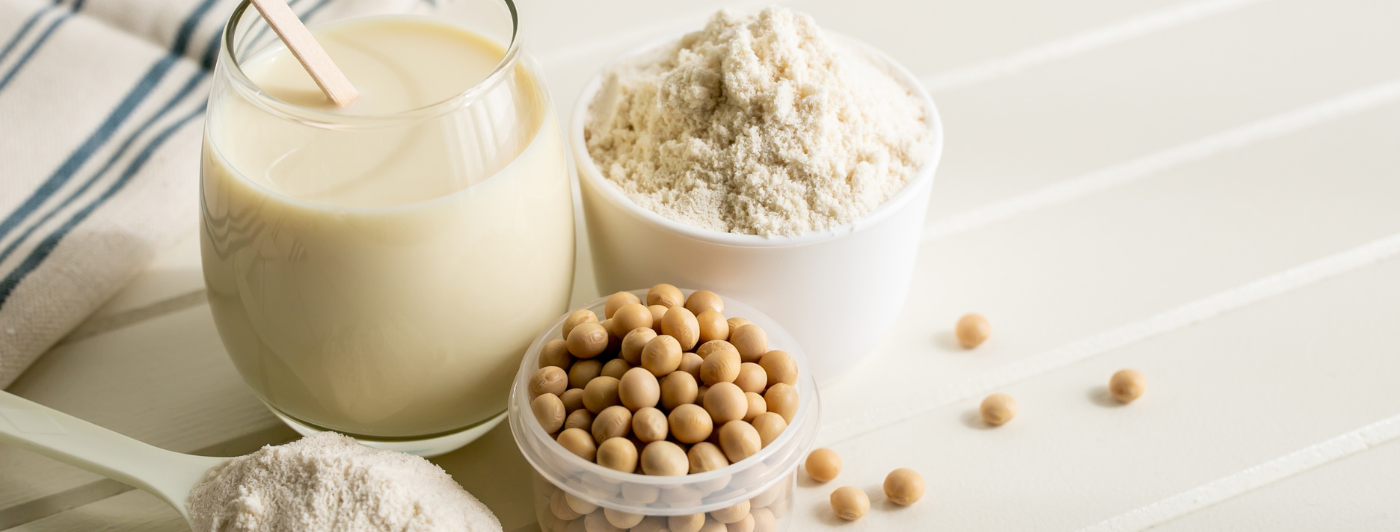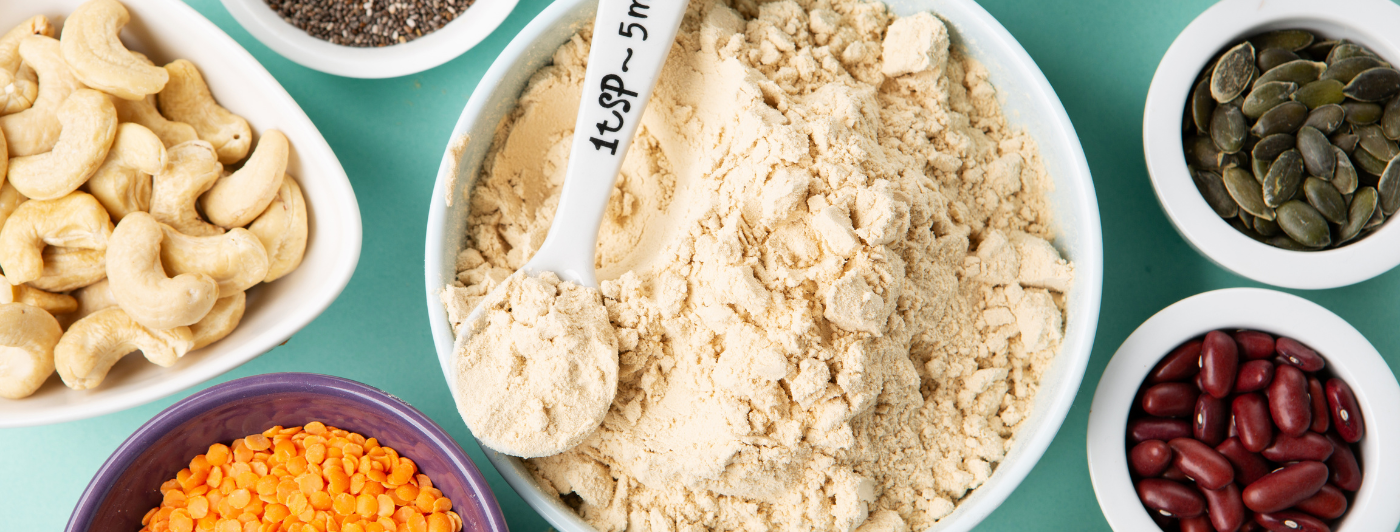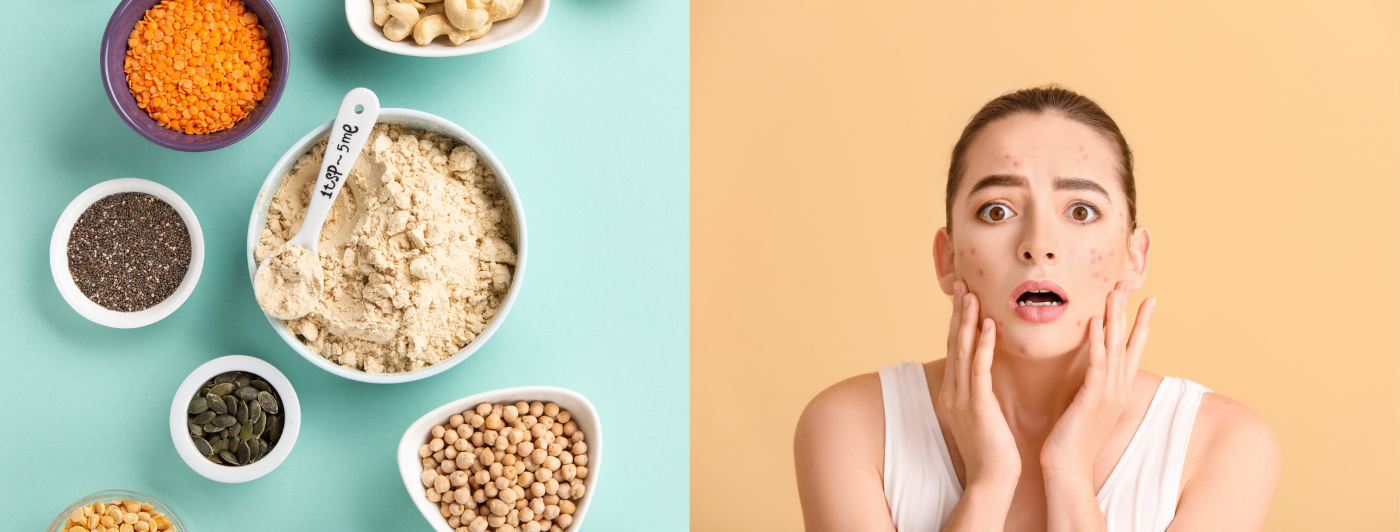Dairy free protein powders have been gaining popularity among fitness enthusiasts and individuals with dietary restrictions due to a growing awareness of the negative health effects of dairy products for some individuals, as well as the increasing availability of plant-based protein sources.
Protein is essential for muscle building and repair, making it a crucial component for anyone looking to improve their fitness and athletic performance. Dairy free protein powders, derived from sources like peas, rice, hemp, and soy, offer a convenient and effective way to meet daily protein needs without consuming dairy products.
These alternatives are often rich in essential amino acids and nutrients necessary for muscle growth and recovery, making them a suitable option for those following a plant-based diet or individuals with lactose intolerance or other dairy allergies.
As more people prioritize their health and seek out sustainable and ethical food choices, the demand for dairy free protein powders continues to rise. With advancements in taste and texture, these products are now easily incorporated into smoothies, baked foods, and other recipes, making them a versatile and appealing choice for a wide range of consumers.
Dairy Free Protein Powders vs. Whey Protein: A Breakdown
Here's a comparison of dairy-free protein powders and whey protein, focusing on Micronutrient variety, Lactose content, and Fiber content, with some real-world examples:
Micronutrient Variety:
- Dairy-Free Protein Powders: Certain plant-based protein sources, depending on the specific ingredients used in the powder, can be richer in micronutrients compared to whey. For example, pea protein powder can be a good source of iron, while brown rice protein powder may offer some B vitamins. Additionally, some plant-based protein blends might be fortified with additional vitamins and minerals, providing a more well-rounded micronutrient profile.
- Whey Protein Powder: Whey protein powder is generally lower in micronutrients compared to some plant-based options. Micronutrients include vitamins, minerals, and antioxidants.
Lower Lactose Content:
- Dairy-Free Protein Powder: By definition, dairy-free protein powders are free from lactose. This makes them a perfect option for individuals with lactose intolerance or those who follow a vegan diet that excludes all animal products, including dairy. Plant-based protein sources like pea, rice, and hemp naturally contain no lactose, eliminating digestive concerns for these individuals.
- Whey Protein Powder: Since whey is derived from milk, it naturally contains lactose, a milk sugar that some people struggle to digest. This can lead to bloating, gas, and other digestive discomfort. Whey isolate reduces lactose content, but it may still cause issues for those with severe lactose intolerance.
Fiber Content:
- Dairy-Free Protein Powders: Many plant-based protein sources naturally contain fiber. Powders made from ingredients like whole grains (brown rice), legumes (peas), or seeds (hemp) can boast several grams of fiber per serving. This can be a benefit for those seeking a more well-rounded nutritional profile from their protein powder, including promoting gut health and potentially aiding with weight management by increasing satiety.
- Whey Protein Powder: Traditionally, whey protein powder is very low in fiber, usually containing less than 1 gram per serving. This can be a drawback for those looking to increase their overall fiber intake, which is important for gut health, digestion, and feelings of fullness.
Promising Results:
- Muscle Growth: Studies show that consuming similar amounts of protein (both total and BCAAs) from plant based sources can lead to muscle growth comparable to whey protein, especially when combined with resistance training. This is good news for those who want to build muscle but avoid animal products.
- Improved Digestibility for Some: Certain plant-based proteins, like pea protein, may be even easier to digest than whey protein for some individuals. This can be beneficial for those who experience bloating or discomfort with whey.
Research Examples:
Studies are backing the effectiveness of plant-based protein for muscle building. Research by Hevia-Larraín et al. (2021) showed similar muscle growth and strength gains in resistance-trained individuals who followed a high-protein plant-based diet compared to those on a mixed diet with animal protein. Additionally, Joy et al. (2018) found that consuming rice protein after resistance training led to similar muscle protein synthesis as whey protein, highlighting the potential of plant-based sources to support muscle growth.
Power Up Your Gains: Maximizing Muscle Growth with Dairy-Free Protein Powders
So you've opted for a dairy-free lifestyle but still want to build serious muscle? Don't worry, plant based protein powders can be your allies! Here are some key tips and best practices to maximize muscle gain with dairy-free protein options:
1. Choose the Right Powder for Your Needs:
- Go Beyond Protein Content: Don't just focus on grams of protein. Look for powders with acomplete amino acid profile. Consider blends of pea, rice, and hemp protein to achieve this.
- Digestive Harmony: Choose powders known for easy digestion like pea proteinorhemp protein. Soy protein can be a good option, but be mindful of any personal sensitivities.
- Quality Matters: Invest in high-quality powders from reputable brands. Look for certifications that ensure purity and minimal fillers or additives.
2. Time Your Intake Strategically:
- Post-Workout: Aim for 20-30 grams of protein within 30 minutes of finishing your workout to jumpstart muscle repair and growth.
- Spread Throughout the Day: Consume smaller protein doses (20-30 grams) every 3-4 hours throughout the day to maintain a positive muscle protein balance
3. Don't Neglect the Bigger Picture:
- Diet is King: Protein powder is a supplement, not a replacement for a healthy diet. Focus on whole food sources like legumes, nuts, and whole grains for a well-rounded nutrient intake to avoid protein deficiency.
- Fuel Your Workouts: Ensure you're consuming enough calories to support muscle growth. Aim for a slight calorie surplus to provide the energy needed to build muscle.
- Prioritize Sleep: Aim for 7-8 hours of quality sleep each night. Muscle repair and growth happen primarily during sleep, so prioritize rest and recovery.
4. Track Your Progress and Tweak Accordingly:
- Monitor your weight and body composition: Aim for a gradual increase in muscle mass while keeping body fat in check.
- Adjust your protein intake or training program: If you're not seeing the desired results, consider increasing your protein intake or modifying your strength training/workout routine.
Summing Up:
By following these tips, strategically incorporating dairy-free protein powders into your routine, and staying committed to your training and diet, you can achieve impressive muscle-building results. Consulting with a healthcare professional or a registered dietitian can be immensely helpful. They can offer personalized advice on incorporating Plant Based vegan protein powder for Muscle gain goals. Remember, Everyone's body is unique and consistency is the Key!
So, embrace the plant-powered path to sculpted success!











